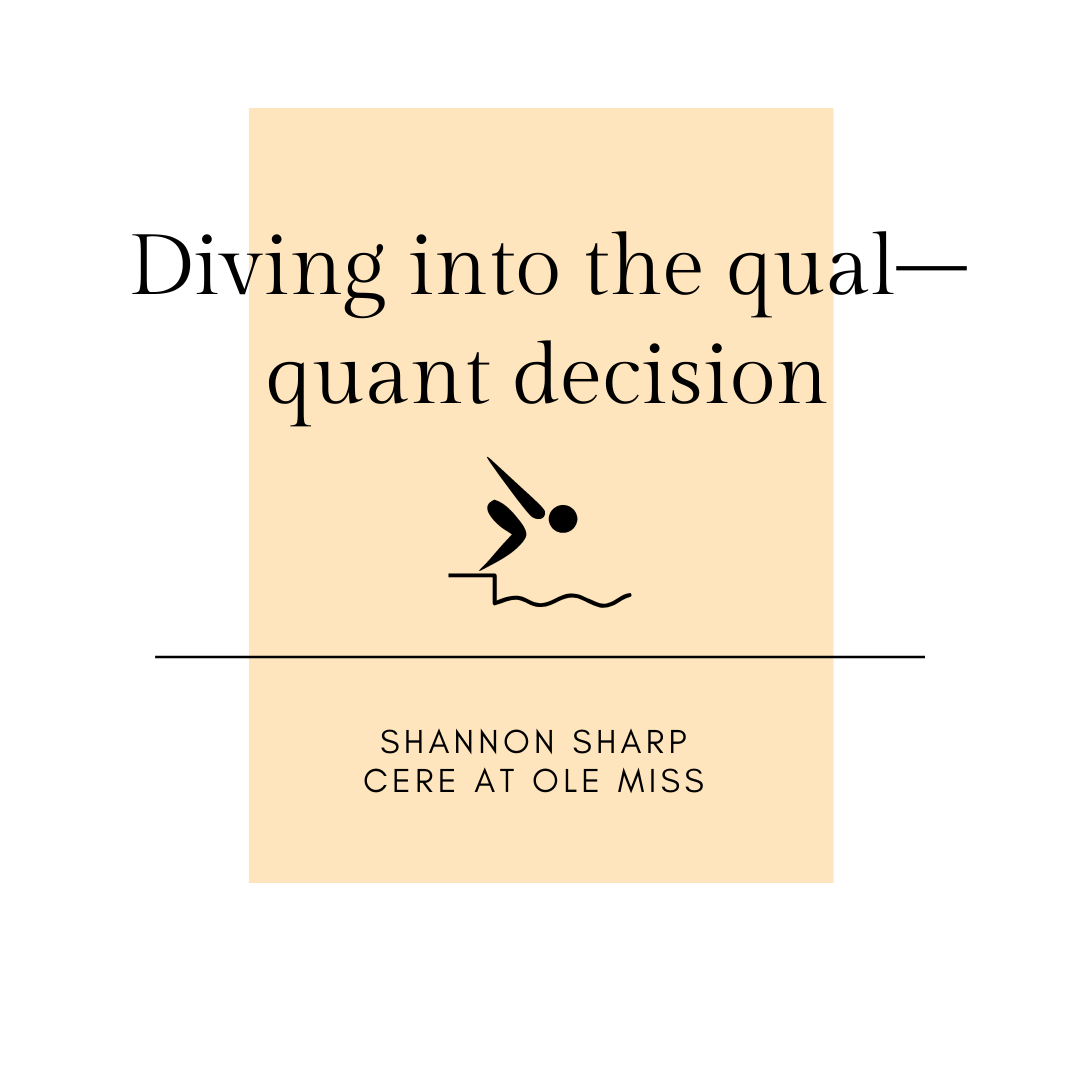
From Analysis to Evaluation: My Transition as a Graduate Assistant
By Anna Beavers
After finishing my undergraduate studies at the University of Mississippi, I promptly packed what I could fit into four suitcases and moved to Abu Dhabi to begin working as an intelligence analyst. My educational background in homeland security, intelligence and security studies and Arabic had prepared me for this transition into the professional realm. I spent the next two years conducting qualitative and quantitative research on a myriad of global intelligence issues and threats.
After some time in the Middle East, I decided to return to the University of Mississippi to attend law school. Once back in the US, as I prepared for this next adventure, an email from the university caught my attention—more specifically, a single line in the email: “We’re a multidisciplinary team who believes that program evaluation is a foundation for learning, improvement, and—ultimately—doing as much good as possible.”
At the time, I did not know what research evaluation was and I had never heard of the university’s Center for Research Evaluation (CERE), but I instantly knew this might be a good fit for me. Doing as much good as possible has always been my overarching motivation and goal.
Having now worked at CERE as a graduate assistant for a few months, I can confirm my earlier inclination was correct.
A Surprising Parallel Between Analysis and Evaluation
It did not take long to realize the structures, processes and goals of intelligence analysis and evaluation are quite similar. The former is guided by an intelligence question, the latter by an evaluation question. Both involve analysis—qualitative, quantitative and mixed-methods. The end product for both provides an assessment that answers the guiding question and looks to the future, often providing predictions (in intelligence analysis) or recommendations (in evaluation).
This parallelism has been a pleasant surprise, allowing some of my skills and experience to transfer into my work as a graduate assistant. Still, it has been the staff here who have most helped me transition into this new role.
The People
Each CERE employee embodies the principle of “doing as much good as possible.” The center is involved in such a wide collection of projects, almost all of which focus on serving the community. The staff are diverse, with a variety of skills and backgrounds, and the center uses this strength to approach its diverse portfolio.
Not only is every team member individually impressive, capable and dedicated to their work, they are also devoted to their colleagues. CERE strives to foster a positive and joyful work environment and, as a new law student, this has made all the difference to me.
Support from the CERE team has been two-fold: first, in my exploration of evaluation; second, in my personal and academic life. Law school has emerged as a greater beast than I could have imagined—the stress and long hours were surprising and overwhelming. At first, I thought I would not be able to retain my position as a graduate assistant because of the law school workload. But, in a possibly surprising twist, my employment at CERE—and the wonderful colleagues I’m privileged to work with—have proven to be a source of reassurance and comfort throughout this challenge.
The work at CERE is all about maximizing impact and facilitating improvement for those we serve, but this philosophy is applied internally as well. The center and its staff always strive to improve the quality of our work, our work environment and ourselves—both personally and professionally. It is in part this emphasis on betterment that motivates the staff to support each other, and for that I am very thankful.



